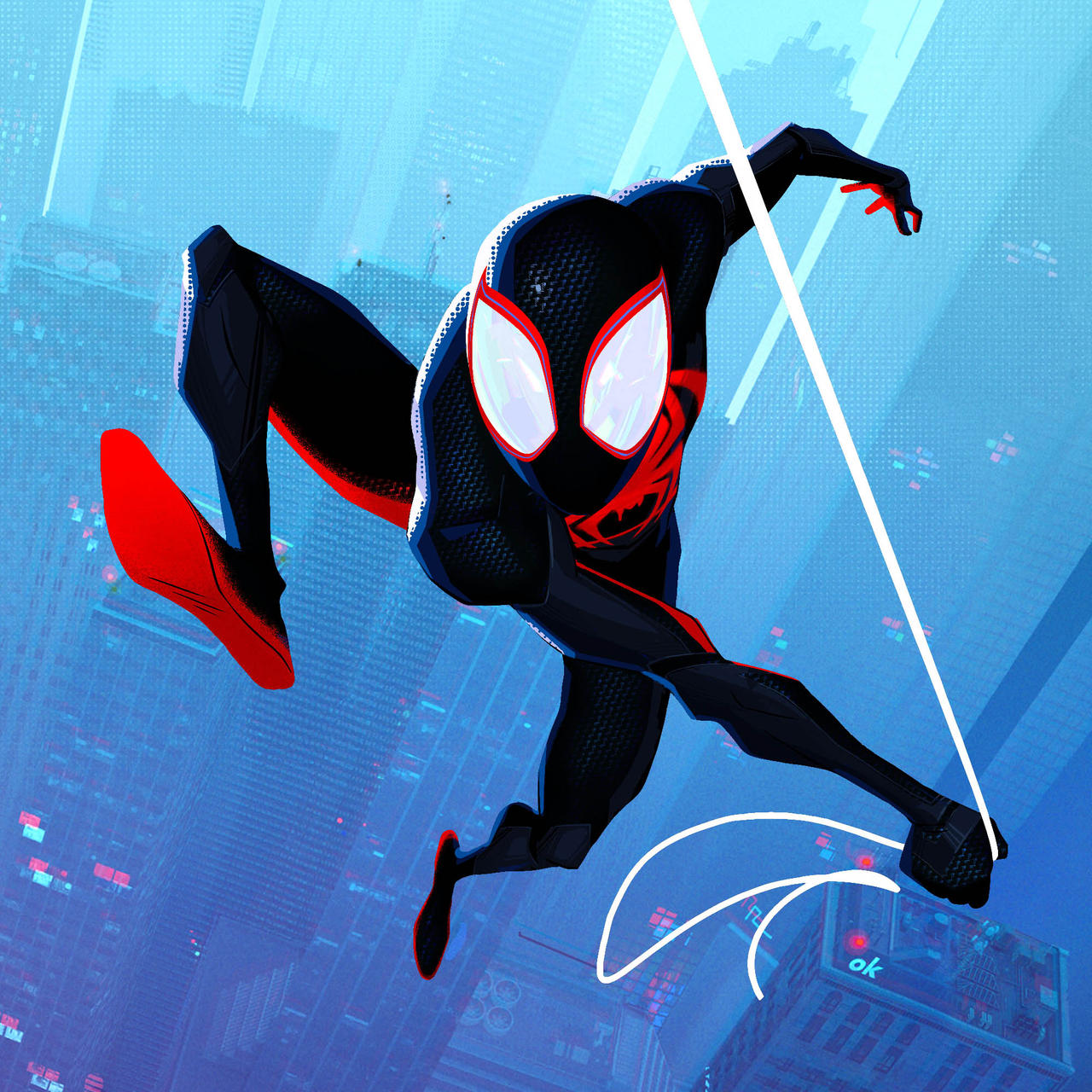
Spider-Man (Miles Gonzalo Morales[1] /məˈrælɛs/) is a superhero and the third predominant Spider-Man to appear in American comic books published by Marvel Comics, created in 2011 by writer Brian Michael Bendis and artist Sara Pichelli, along with input by Marvel's then-editor-in-chief Axel Alonso. Born as a modern reimagining of the popular character, Miles Morales debuted in Ultimate Comics: Fallout #4. Originally from the alternate Ultimate Marvel Universe Earth-1610 before being transported to the main Marvel Universe Earth-616, he was bitten by a model spider specially and genetically engineered by Oscorp Industries biochemist Dr. Conrad Marcus, who used the Oz Formula at the behest of Norman Osborn to create "enhanced spiders" in an attempt to duplicate the abilities of the original Spider-Man of the Earth-1610 Ultimate Universe.
The Afro–Puerto Rican teenage son of an African-American father and an Afro-Puerto Rican[4] mother, Miles Morales is the second Spider-Man to appear in Ultimate Marvel, an imprint with a separate continuity from the mainstream Marvel Universe called the Ultimate Universe (Earth-1610), first appearing in Ultimate Fallout #4 (August 2011), following the death of the Ultimate Peter Parker.[5] He was featured in the Ultimate Comics: Spider-Man comic book series, and after Marvel ended the Ultimate imprint in 2015, Miles was transported to the main Marvel Universe (Earth-616), beginning with stories under the All-New, All-Different Marvel branding that debuted that same year, with Miles' original Earth-616 counterpart, the villainous Ultimatum, introduced in Spider-Men II in 2017.
While established as being Puerto Rican, the race of Rio Morales was previously left ambiguous. Comics writer Cody Ziglar established in the 2024 Miles Morales: Spider-Man Annual that Rio's family were Afro-Puerto Rican themselves, following up on confirmation in a previous interview.[6] Reaction to the character was mixed. Some, including Spider-Man's co-creator, Stan Lee, approved the creation of a positive role model for children of color. Others expressed displeasure at the replacement of Peter Parker, with The Guardian, Fox News, and Culture Map Houston reporting that some fans viewed the decision as an attempt by Marvel Comics to exhibit political correctness, and that the introduction of a minority Spider-Man was simply a publicity stunt to attract more readers,[7][8][9][10] a charge Alonso denied.[7] Alexandra Petri of The Washington Post called for the character to be judged on the quality of his stories, which garnered positive reviews.[11]